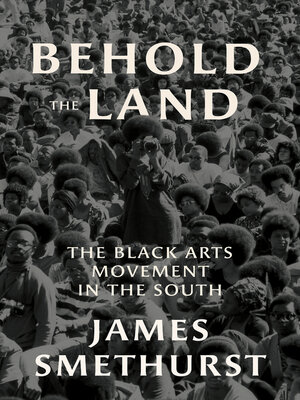Behold the Land
ebook ∣ The Black Arts Movement in the South · The John Hope Franklin Series in African American History and Culture
By James Smethurst

Sign up to save your library
With an OverDrive account, you can save your favorite libraries for at-a-glance information about availability. Find out more about OverDrive accounts.
Find this title in Libby, the library reading app by OverDrive.



Search for a digital library with this title
Title found at these libraries:
| Library Name | Distance |
|---|---|
| Loading... |
In the mid-1960s, African American artists and intellectuals formed the Black Arts movement in tandem with the Black Power movement, with creative luminaries like Amiri Baraka, Gwendolyn Brooks, Toni Cade Bambara, and Gil Scott-Heron among their number. In this follow-up to his award-winning history of the movement nationally, James Smethurst investigates the origins, development, maturation, and decline of the vital but under-studied Black Arts movement in the South from the 1960s until the early 1980s. Traveling across the South, he chronicles the movement’s radical roots, its ties to interracial civil rights organizations on the Gulf Coast, and how it thrived on college campuses and in southern cities. He traces the movement’s growing political power as well as its disruptive use of literature and performance to advance Black civil rights.
Though recognition of its influence has waned, the Black Arts movement’s legacy in the South endures through many of its initiatives and constituencies. Ultimately, Smethurst argues that the movement’s southern strain was perhaps the most consequential, successfully reaching the grassroots and leaving a tangible, local legacy unmatched anywhere else in the United States.
Though recognition of its influence has waned, the Black Arts movement’s legacy in the South endures through many of its initiatives and constituencies. Ultimately, Smethurst argues that the movement’s southern strain was perhaps the most consequential, successfully reaching the grassroots and leaving a tangible, local legacy unmatched anywhere else in the United States.







